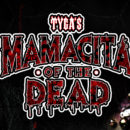
Josh Gruss • CEO/Chairman • Round Hill Music
Years with Company: 3
Address: 400 Madison Ave., 18th fl., New York, NY 10017
Phone: 212-380-0080
Fax: 212-380-0081
Web: http://roundhillmusic.com
Email: NA
Clients: Charlie Midnight, Arif Mardin, Rubikon, Spacehog, Fierce Bad Rabbit, Charlie Hunter, Tatiauna “Tatu” Matthews, Jason Krause, Arthouse Entertainment, GIL/GPS
BACKGROUND: In three short years, Josh Gruss has built Round Hill Music, a full-service music publisher and creative rights management company, into an industry powerhouse. Having established relationships with notable writers such as Chris Caswell and Tatu, they’ve even acquired six early Beatles songs. Soon, the fledgling company will expand to Nashville and later hopes to create a presence in London.
From Music To Finance
When I was in high school and college, I thought for sure I was going to be in the music industry. My first job out of college was at Atlantic Records, but I only did it for about a year, at which point I joined a band. I did that for a couple years, but then started feeling the draw into the world of finance. At first it was tough for me, because I hadn’t really studied finance. But I stuck with it for about 13 years and fell in love with it. I got my M.B.A. at Columbia Business School and worked at Bear Stearns and a few other places.
…And Back To Music
I wanted to get back into music, because that’s where my passion lies. But I’m also an investor. When you look at the music space and choose which area you want to invest in, publishing stands out as the most conservative play. That really fit my risk tolerance and became my area of focus. Our timing was great, because it was right after the financial crisis and, in the marketplace of catalogs, there was a lot of value. There was a lot of discounted pricing. It was a good time to be buying.
Hiring Experience
I hired a couple of experienced executives, Neil Gillis and Richard Rowe. Richard used to run Sony / ATV, which is the largest publisher in the world. He ran that for 16 years and took it from nothing to what it has become today. He did the joint venture deal to buy the Beatles catalog with Michael Jackson and a bunch of other famous catalog deals. Neil worked at Warner / Chappell for 15 years and has been in the business over 30. So he comes with a lot of experience.
Personalized Attention
Our timing was good in terms of buying catalogs, but it was also a good time to start a business that services songwriters. That’s what a publisher’s supposed to do. They’re supposed to provide client service to a songwriter—help them administer royalties, help them maximize the value of their songs through synchronization and licensing. It’s about helping them get their songs placed on records, setting them up with other songwriters to do collaborations and co-writes. Those things have kind of gotten lost, because the big dogs in our business had taken on so many songwriters and catalogs that it was impossible to truly service their songwriters. Our whole mantra is based around client service.
The Personal Touch
We’re currently managing only six or seven thousand songs. The employee to song and songwriter ratio is much lower than you’d have at a major company. When a songwriter calls us, we know who they are. We talk to them on a regular basis. We give them transparent insight into what we’re doing with their songs, how we’re marketing their songs. We’re giving them a personal touch that they wouldn’t get at a much larger company.
Services
We do everything a publisher’s supposed to do, which at the most basic level is collect their royalties from around the world. We do our own administration in-house. Then we have a network of partners around the world who help us collect international royalties. The second thing is finding placements for songs in the worlds of film, TV and video games. We do a bunch of other things, too, like A&R. And then there are things like piracy. In monitoring piracy, we use a lot of partners to help us make sure music isn’t going unlicensed or stolen. It’s rare that a songwriter would sign up for anything but all of those services, though we do have bands and songwriters who work with us just for sync placement.
Royalty Matters
It starts with great songs. Great songs typically mean they’re songs that are making money. We don’t really do many deals with songwriters who aren’t already bringing in steady royalty income, because that doesn’t work for us as a business. There’s got to be some of that income happening and then we have to be passionate about the songs and feel we can add value to them.
Get Buzzed
We do stuff with up-and-coming bands that might not have much history. In those cases, we want to see things like YouTube hits, Facebook activity, listens on SoundCloud, that their songs have potential for synchronization. In the world of synchronization, there’s stuff that sometimes won’t work. Heavy metal is not something a lot of TV shows are asking for. But if the songs are catchy and sync friendly and the band has some buzz, then that’s something we’re interested in.
Co-Publishing Versus Administration
There are two basic agreements. There’s a co-publishing agreement, where the publisher gives an advance to a songwriter in exchange for, typically, half the publishing. It might be a term of, say, one year. And the songwriter has minimums, meaning the songwriter has to write a minimum of 10 songs and all 10 have to be released by a nationally distributed label. There’s another type of agreement called an administration agreement, where we buy no ownership of the publishing. The publisher simply administers their royalties and takes a fee for doing so. And the fee is typically between 10 to 20 percent of the royalty income.
Catalog Acquisition
This is where my finance background is really helpful, because buying catalogs is really about math, making the numbers work. But it’s also about buying songs that are going to be perpetually relevant. We try to focus on the most iconic music we can get our hands on. A lot of times when a songwriter sells their catalog, they only sell us a piece, so they have this retained interest. They’re really entering into a partnership with us, and because of our boutique nature, we’re able to have an easier time convincing a songwriter to sell us their catalog.
Songwriters Need To Get Paid, Too
There are many issues at the moment, whether it’s the small royalties that Pandora is paying or Internet piracy and the fact that no one is really buying music anymore. Luckily, the publishing industry is very resilient and we make money from so many different ways that, even if people are not buying CDs anymore, that doesn’t affect us much. Everyone thinks music should be free. They think bands should forget about selling records and live off selling T-shirts and touring. Well, what if you’re a songwriter? It needs to be properly compensated.
Check Your Contract
So many musicians and artists don’t read their contracts. There are many bands I’ve been interested in but haven’t been able to sign because, at some point in their past, they signed away their catalog to some of these less gentlemanly companies. Read the contract and be careful what you enter into.












